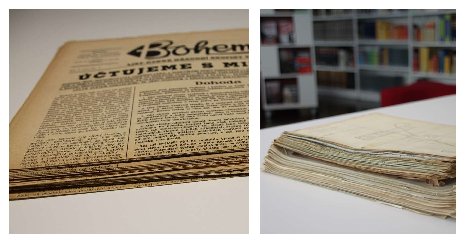Sudeten Germans Transnational, Global, and Digital. Networks in Postwar Periodicals, 1945–1975

"Sudeten Germans Transnational, Global, and Digital. Networks in Postwar Periodicals, 1945–1975"
Project duration: August 2021 until December 2023
Project Management: Arpine Maniero
Project staff: Niklas Platzer
Funding: This project is financially supported by the BKM
“Sudeten Germans Transnational, Global, and Digital. Networks in Postwar Periodicals, 1945–1975”
The history of the Germans in Eastern Europe was already one of transnational interweaving prior to the breaking points represented by the World Wars. Among the aspects shaping the lives of these people were conflict and cooperation between various social groups, ethnicities, and confessions. This prior history forms the background for the conflicts involving the Germans from Czechoslovakia after the Second World War – for while non-German emigrant groups often viewed them with distrust, there was also a certain propinquity due to the shared history and experiences. This was true for the situation in Germany as well as worldwide. Politically, multiple different groups and factions struggled for control of the narrative on core issues like the displacement of Germans from Eastern Europe, the postwar order, and the possibility of returning – but at the same time, they also often worked together. The resulting debates are archived in the postwar periodicals published by these groups in Germany, Europe, and the rest of the world. These printed media were essential instruments for transacting political conflicts and winning over public opinion.
The project explores and makes accessible an important aspect of this transnational and global history of interdependence using digital humanities methods and systematically integrating the non-German perspective. With the help of digital indexing and biographical network analysis of postwar and exile periodicals, the shared history of Sudeten Germans, Czechs, and Slovaks is investigated from a new point of view. The target audience includes the specialist academic community as well as the broader public. The digitalised documents and research results will be permanently stored and made accessible quickly and free of charge. Besides a gateway for the German-speaking public, dedicated access in Czech, Slovak, and English is also planned.

